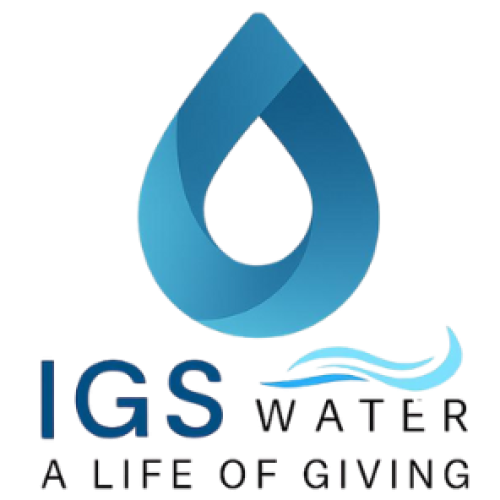When it comes to ensuring that the water flowing through our pipes, appliances, and systems is gentle, scale-free, and safe, many people immediately think about chemical softeners or filters. But there’s another, innovative approach gaining traction: the IGS Water Conditioner. In this article, we’ll explore what it is, how it works, its benefits, use-cases, and things to watch out for. Whether you’re a homeowner, farmer, or industrial operator, this might be a solution worth knowing.
What Is the IGS Water Conditioner?
The IGS Water Conditioner is a non-chemical device designed to treat hard water by preventing and reducing scale buildup, protecting equipment, and improving water quality—without salts, resins, or the usual maintenance of traditional softeners.
Some of its claimed features:
- Works 24/7, with no chemicals, fuel, salts, care, refills, or ongoing charges
- Requires no electricity and no maintenance
- Provides scale prevention at the “source” and helps extend the life of appliances, pipes, and cooling systems
- Offers a range of models to match different flow rates—from small domestic units to large industrial ones (from ~5 L/min up to 1,600 L/min)
Essentially, it is presented as a passive, long-life “softening / conditioning” option that doesn’t depend on salt or harsh regeneration cycles.
How It Works (The Basics)
The IGS Water Conditioner is usually installed as a side-stream unit in larger systems (e.g. cooling towers) or inline for domestic appliances.
Here’s a simplified breakdown:
- Side-Stream Setup
In industrial or large systems, a portion of the water is diverted (“side stream”) through a pump, passed through the IGS unit, and then re-introduced into the main flow. This enables continuous treatment without interrupting or modifying the primary system. - Static Mixer Integration
Some configurations include a static mixer after the conditioner. This helps mix treated water with the rest of the stream, and if chemicals are used (in hybrid applications), it enhances dispersion. - No Consumables or Sacrificial Anodes
Unlike many “scale prevention” systems that rely on sacrificial anodes or consumables, the IGS core alloy is engineered to last without replacement (under normal conditions). - Physical / Structural Effects on Minerals
Though the exact proprietary mechanism is not fully disclosed in public marketing, the idea is that the conditioner influences how dissolved minerals precipitate (making them less prone to forming hard scale on surfaces). Many modern scale control technologies act via controlled nucleation, crystal modification, or charge effects. The IGS system apparently applies similar principles (without added chemicals) to keep scale from adhering to surfaces.
Benefits & Value Propositions
What makes IGS Water Conditioner stand out (according to its marketing) are the following benefits:
1. Protection Against Scale
One of the primary problems of hard water is scale buildup—inside pipes, heating elements, cooling towers, boilers, shower heads, and more. The IGS device is designed to keep scale formation in check, which means:
- Less frequent descaling or cleaning
- Extended lifespan of equipment
- Improved heat transfer efficiency
2. Cost & Resource Savings
Because it doesn’t require consumables or electricity, long-term operational costs are low. In industrial settings, reduced downtime, fewer chemical cleans, and lower maintenance costs may translate to significant savings. In fact, IGS claims that for cooling tower systems, maintenance, cleaning, and part replacement costs can be reduced by 30% to 50%.
3. Broad Application Range
The product is marketed for multiple contexts:
- Showers, dishwashers, washing machines
- Pools
- Residential usage
- Irrigation systems
- Cooling towers and industrial systems
- Drill rigs and farm / livestock water systems
This flexibility allows one technology to be scaled depending on use.
4. Health, Safety & Environmental Considerations
- Because it uses no chemicals, salts, or power, it is positioned as an eco-friendly alternative
- It may help improve water and air quality by mitigating scale-related inefficiencies (in cooling systems, for example)
- Lesser reliance on harsh decalcifiers and acidic cleans results in fewer risks associated with handling those chemicals
5. Durability & Low Maintenance
IGS claims that their units can last for decades (20+ years under normal operation) without needing replacement parts, consumables, or special upkeep.
Use Cases & Where It Shines
Let’s look at scenarios where the IGS Water Conditioner may deliver strong benefits:
Residential Use
Imagine you live in an area with hard groundwater. Your shower heads clog, your kettle mineralizes, your appliances become inefficient. Installing a small IGS shower or appliance unit could help reduce scale deposition in your daily home plumbing, making things smoother, with softer skin and fewer deposits.
Agriculture & Livestock
If you draw from bore or well water to irrigate fields or supply livestock, hard water deposits inside pipes and sprinklers can severely hamper flow or require repeated cleaning. The IGS system can treat water before it enters the system, helping prolong equipment life and ensuring more reliable delivery.
IGS even specifically suggests that one should treat hard bore water before pumping into a dam or holding pond.
Pools & Aquatic Systems
Swimming pools, spas, and other recreational water bodies often face scale issues, especially when hardness is high, and chemical balancing is crucial. A device like the IGS Water Conditioner may reduce scale formation in these systems, thus reducing cleaning cycles and preserving surfaces.
Industrial & Cooling Towers
Cooling towers are notorious for scale issues, which can hamper heat exchange, clog spray nozzles, and increase energy usage. The side-stream setup of IGS water conditioning allows it to treat part of the water continuously without overhauling the whole system. The benefits cited include:
- Cleaner and clearer water
- Reduced scale on cooling tower fill
- Protection of downstream equipment
- Savings in unscheduled downtime and maintenance
This makes it appealing for factories, HVAC plants, manufacturing, chemical plants, and large facilities.
Drilling & Geothermal / Pump Systems
Hard water in drilling operations can lead to rapid wear, scaling on pipe interiors, and reduced efficiency in boring rock or fluid handling. Using the IGS unit can reduce these risks—especially when pumping rock-laden water or drilling with harsh feed water.
Limitations, Considerations & What to Watch Out For
While the IGS Water Conditioner offers several attractive features, it’s prudent to be cautious and realistic. Here are points to consider:
- Effectiveness Varies with Water Chemistry
Scale formation depends on multiple things: calcium, magnesium, silica, alkalinity, total dissolved solids (TDS), pH, temperature, etc. Any “non-chemical” scale control device (IGS or otherwise) may work well under certain water chemistries and less so under others. Actual performance in your locale may differ from marketing claims. - No Softening (Ion Exchange) — Just Conditioning
It’s likely not removing hardness (i.e. the calcium and magnesium ions) but altering how they precipitate. So if your purpose is to remove hardness (for instance for laundry, drinking water), this is not a substitute for full softeners or water treatment. It helps prevent scale, but doesn’t make “soft water” in the classic sense. - Installation & Flow Matching
To gain full benefit, the unit size must match the flow and demands of the system. Oversizing or undersizing will reduce effectiveness. For large systems, correct side-stream design and mixing are critical. - Lack of Independent Testing or Peer Reviews
Many such devices are marketed with bold claims, but real-world independent studies are fewer. Before investing, one should seek case studies, third-party validation, or pilot testing. - Expectations Must Be Realistic
It won’t eliminate all scaling instantly—rather, it should reduce rate of scale formation and make deposits looser and easier to remove. In heavy scaling conditions, periodic cleaning might still be necessary (though less often). - Upfront Cost & ROI Calculation
While ongoing costs are low, initial cost may be significant (especially for large units). You’ll need to calculate payback based on how much you save in maintenance, repairs, downtime, and chemical usage.
Tips for Getting the Most from IGS Water Conditioning
- Analyze Your Water Chemistry
Before installation, test hardness, TDS, alkalinity, pH, silica, etc. This gives a baseline to compare performance. - Pilot / Trial Implementation
Try small-scale units in your home or a portion of your system as a proof of concept before full rollout. - Proper Flow Design & Bypass
In complex systems, use a side-stream bypass so the conditioner treats only part of the flow, avoiding the need to treat full volume directly. - Continuous Monitoring
Track scaling, pressure drops, heat transfer efficiency, maintenance frequency before vs. after installation to see real gains. - Combine with Other Treatments if Needed
In some systems you might still need biocides, corrosion inhibitors, or supplementary chemical treatments. IGS can reduce reliance—but may not fully replace all treatments. - Keep Records
Date of installation, model, operating flows, water test results, maintenance logs—all will help with performance assessment and future upgrades.

